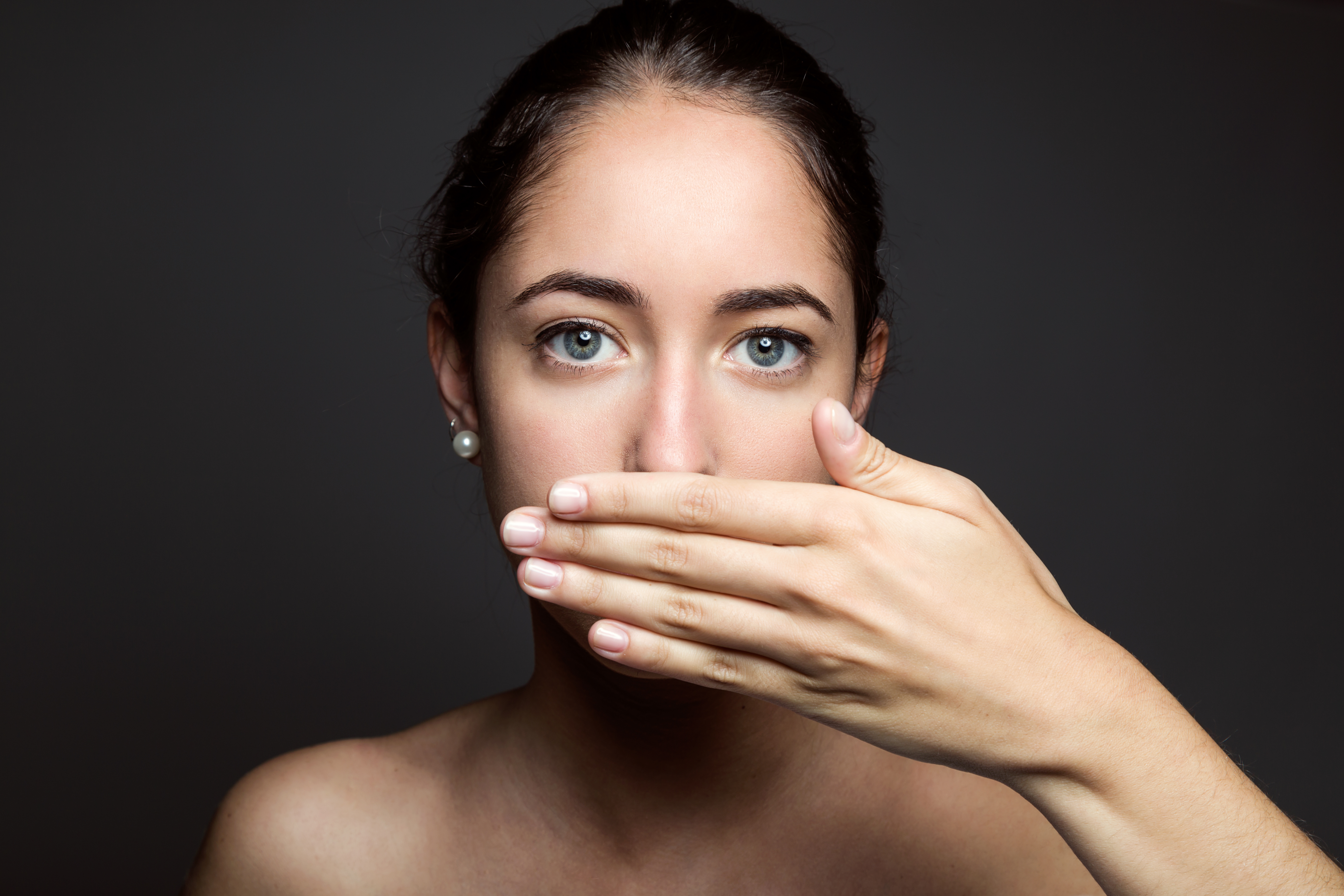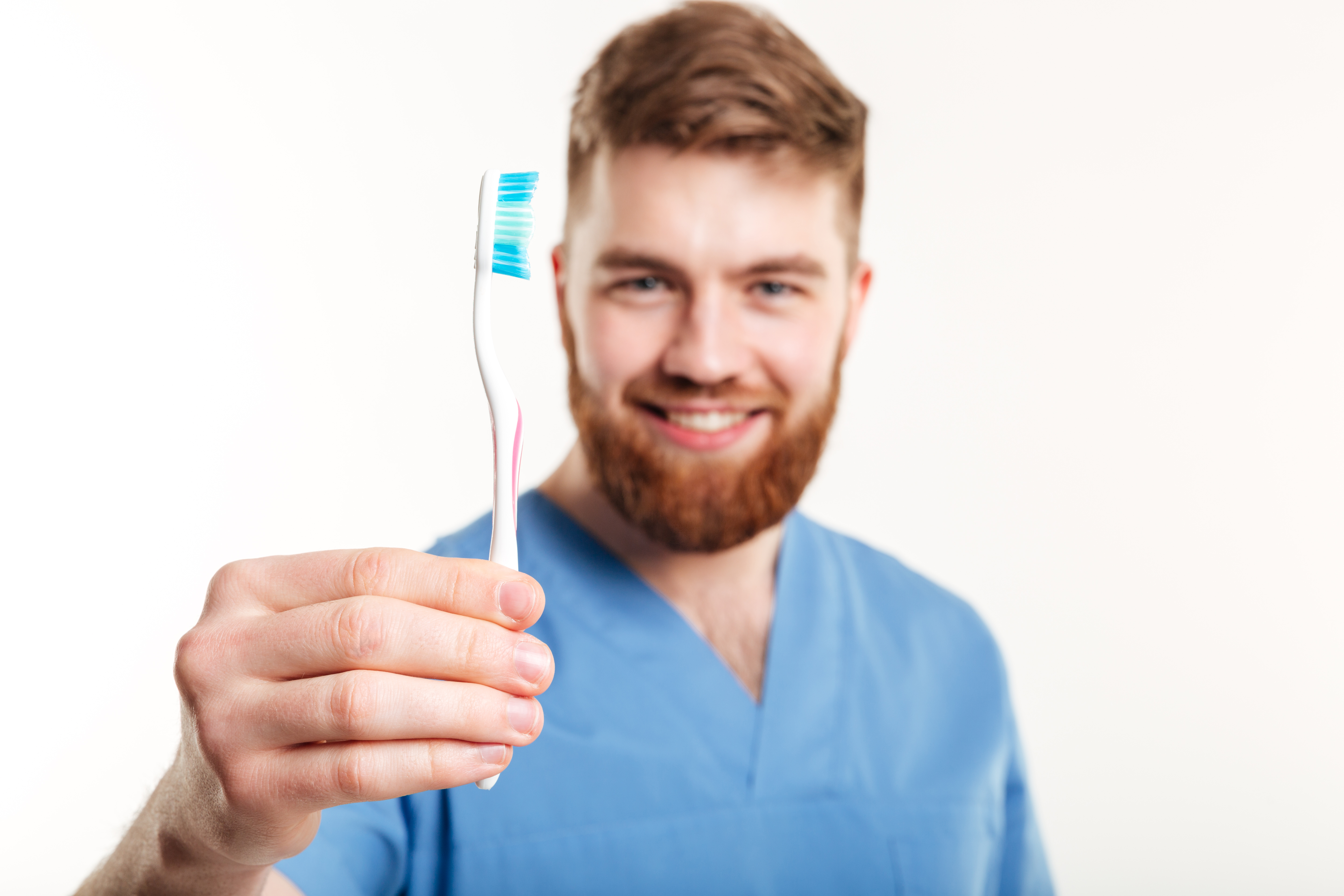How to get rid of bad breath?

Most of us know halitosis simply as "bad breath." Although this is a relatively small health problem,
bad breath can be distressing. It is not surprising that we spend a lot of money every year on various solutions
that help us refresh our breath with sprays, toothpastes, antiseptics and dental floss.
Causes of halitosis
The most common cause of bad breath is eating food. Garlic, onions, some types of fish, and diets rich in fat and meat can
all result in halitosis. When these foods are digested, volatile substances or chemicals are absorbed into the bloodstream
from where they reach the lungs where they are exhaled through your breath. Also, lack of food, hunger, fasting and a low-calorie
diet can cause "bad breath." During sleep, saliva flow is reduced and food debris dissolves in the mouth, causing bad breath in the
morning.
Halitosis can be also caused by:
-
- decayed teeth
-
- smoking
-
- dentures
-
- periodontal diseases that cause loosening of the teeth, thus enabling the creation of pockets where bacteria colonize and lead to bad breath
-
- chronic lung or sinus infections
-
- breathing through the mouth due to enlarged tonsils
-
- infections in the mouth such as candidiasis
-
- systemic diseases, diabetes,
liver disease, kidney disease
-
- pregnancy
-
- not regular brushing and flossing
-
- Taking certain medications can also cause bad breath,
especially those that reduce saliva flow and lead to dry mouth (for example, some antidepressants, antipsychotics, antihistamines, and
medications to lower high blood pressure).
Symptoms and complications of halitosis
The awkward reason for halitosis is that many people
are unaware that they have it. This is because the cells in the nose that are responsible for the sense of smell do not actually respond
to a continuous flow of bad odor. If you have bad breath you may notice other people's negative reactions and tell your dentist to remove
them. problems.

Diagnosis of halitosis
It is easy to self-diagnose bad breath. You can lick your palm and in a few seconds when it dries you can smell it or take an empty glass,
exhale in it and then smell it. If you need a second opinion, consult your dentist.
Manufacturers of candy and chewing gum have made an industry out of the public's desire for fresh breath. These products can make your breath
sweet and "with menthol freshness." However, they are only temporarily beneficial in freshening the breath. In fact, they
often contain sugar and alcohol, which can lead to tooth decay and worsen the condition.
Proper care of the mouth and teeth and regular visits to the dentist are important, and are the most effective way to control bad breath. Regular brushing, rinsing
the mouth, scraping the tongue and using dental floss can help prevent the problem.
Here are some tips to get rid of bad breath:
- - brushing your teeth 3 times a day and flossing once a day
- - Clean your tongue before going to bed by scraping
- - to prevent hunger by eating regularly and skipping meals
- - See your dentist for advice on maintaining proper care of your gums and teeth
- - Keep your nose and sinuses clean - stimulate saliva during the day with sour fruits such as orange lemons and apples
- - Eat more fiber foods. - chewing fibrous vegetables such as parsley to stimulate saliva flow
- - Drink at least 8 glasses of water a day to keep your mouth moist
- - reduced consumption of alcohol and coffee
- - Ask your doctor or pharmacist if your medication causes dry mouth problems that can lead to bad breath.





